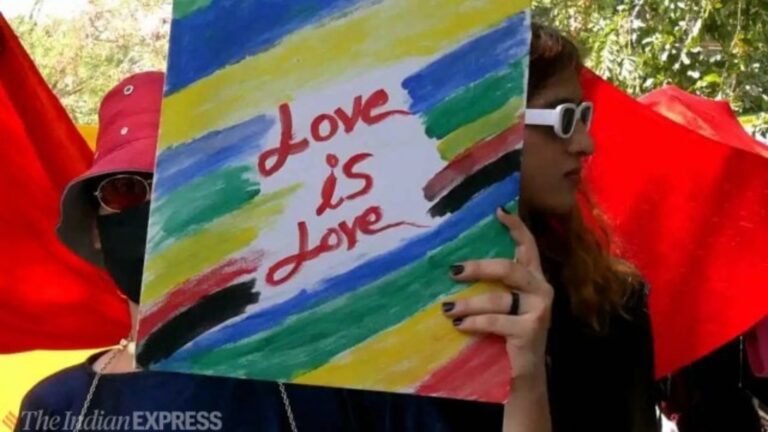Aristotle once declared that speech is the essence of politics, and this concept has endured through the ages. In contemporary democratic thought, whether deliberative democracy or participatory politics, there is an emphasis on voice, speech, and discourse. However, the true meaning of speech emerges through its interaction with silence. What is not said can be equally important. Silence can convey more than words in some circumstances and can signal indifference or even deception in political discourse.
As we read through the verdict of the 2024 general elections, the themes and narratives that have emerged in the election debates have huge implications not just for Indian politics but also for the global community. It will impact future political and social agendas. An examination of the manifestos of political parties will reveal their stand on LGBTQIA+ rights in India.
The invisible minority
In a speech on Human Rights Day in 2011, then US Secretary of State Hillary Clinton highlighted the plight of the LGBTQIA+ community, describing them as an “invisible minority” due to cultural and customary barriers that mask the violation of their rights. She pointed out the persecution, violence, and denial of opportunities faced by LGBTQIA+ people, and stressed the urgent need for recognition and protection of their rights. Clinton’s views remain relevant today, especially in India, where they play a key role in helping political parties combat homophobia and address the “invisible apartheid” against the LGBTQIA+ community.
Recent events such as the tragic suicide of Kishore Kumar, a pioneer of LGBTQIA+ activism in Kerala, highlight the severe impact of systematic oppression. Homophobic harassment and harmful online campaigns exacerbate the suffering of queer people. A similar tragedy occurred on 21 November 2023, when 16-year-old Pranshu Yadav committed suicide. Pranshu, a Grade 10 student from Ujjain city in Madhya Pradesh, faced relentless bullying for his effeminate behaviour and social media presence, culminating in a flood of homophobic abuse that led to his death. Following Pranshu’s death, campaigns like #JusticeForPranshu have emerged, calling for justice and highlighting the rampant bullying faced by queer kids. Despite such tragedies, there is a glaring lack of institutional measures to address bullying and support LGBTQIA+ youth. Additionally, marriage equality remains an unsettled issue after the Supreme Court ruled against legalizing same-sex marriage in 2023, leaving that decision up to Congress.
Lost debate
The 2007 Yogyakarta Principles outline human rights standards regarding sexual orientation and gender identity and affirm the state’s obligation to protect LGBTQIA+ rights. The Indian Supreme Court echoed these principles in decriminalizing homosexuality in 2018, but the state has yet to fully endorse them. In the recent elections, the major political party manifestos reflected a general indifference to these issues.

The conservative, majoritarian Bharatiya Janata Party (BJP) has largely ignored LGBTQIA+ issues in its manifesto. Though it has promised to include transgender people in Ayushman Bharat and extend Garima Grahas for their welfare, it is silent on broader legal rights and social acceptance for the queer community, highlighting the party’s regressive stance.
In contrast, the Indian National Congress, through its Nyai Patra, has promised to legalize civil unions for LGBTQIA+ couples and amend the constitution to include sexual orientation as a ground for non-discrimination, but has stopped short of marriage equality or banning conversion therapy, limiting progress on LGBTQIA+ rights.

The Communist Party of India (Marxist) supported the progressive stance of the Indian National Congress but did not explicitly mention LGBTQIA+ issues in its manifesto. The Aam Aadmi Party (AAP) advocated a “gender-affirming” approach and highlighted safe spaces for LGBTQIA+ people but lacked a comprehensive policy.
The 2024 general election saw little discussion of LGBTQIA+ rights. While parties such as the Indian National Congress and Dravida Munnetra Kazhagam (DMK) proposed small policy changes, parties such as the BJP failed to address key issues affecting the LGBTQIA+ community. Political leaders must prioritize inclusion and equality to build a more just society. The silence of political parties on these issues reflects society-wide indifference towards India’s queer community.
The LGBTQIA+ community must stand firm in asserting their natural rights. As India’s political landscape changes, their calls for rights must be heard and acted upon to ensure true democracy and justice for all.
Naidu is an assistant professor of sociology at MM Shankarrao Chavan Law University, Pune, and chair of the Equal Opportunities Cell. Baghel is an assistant professor of law at MM Shankarrao Chavan Law University, Pune, and coordinator of the Equal Opportunities Cell’s placement office.
© Indian Express Ltd.
First uploaded: 17 Jun 2024 12:49 IST

